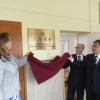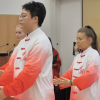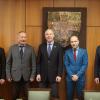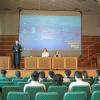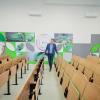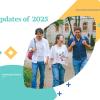GOALS AND OPPORTUNITIES, INTRODUCING THE EDUC
2024
Apr
17
The Central UP Office of the European Digital UniverCity (EDUC) held an information day for all university citizens on 17 April at the Trafik. The day-long event started with a round table discussion, during which the interested participants could learn about EDUC's objectives and opportunities with the help of Dr. István Tarrósy, International Director and EDUC Institutional Head, Dr. András Komócsi, Vice-Rector for Science, and Dr. József Betlehem, Vice-Rector for General, Strategy and Relations.
The day's opening roundtable discussion focused on questions such as What is the purpose? Where did it start? and Where is EDUC (European Digital UniverCity) going now?
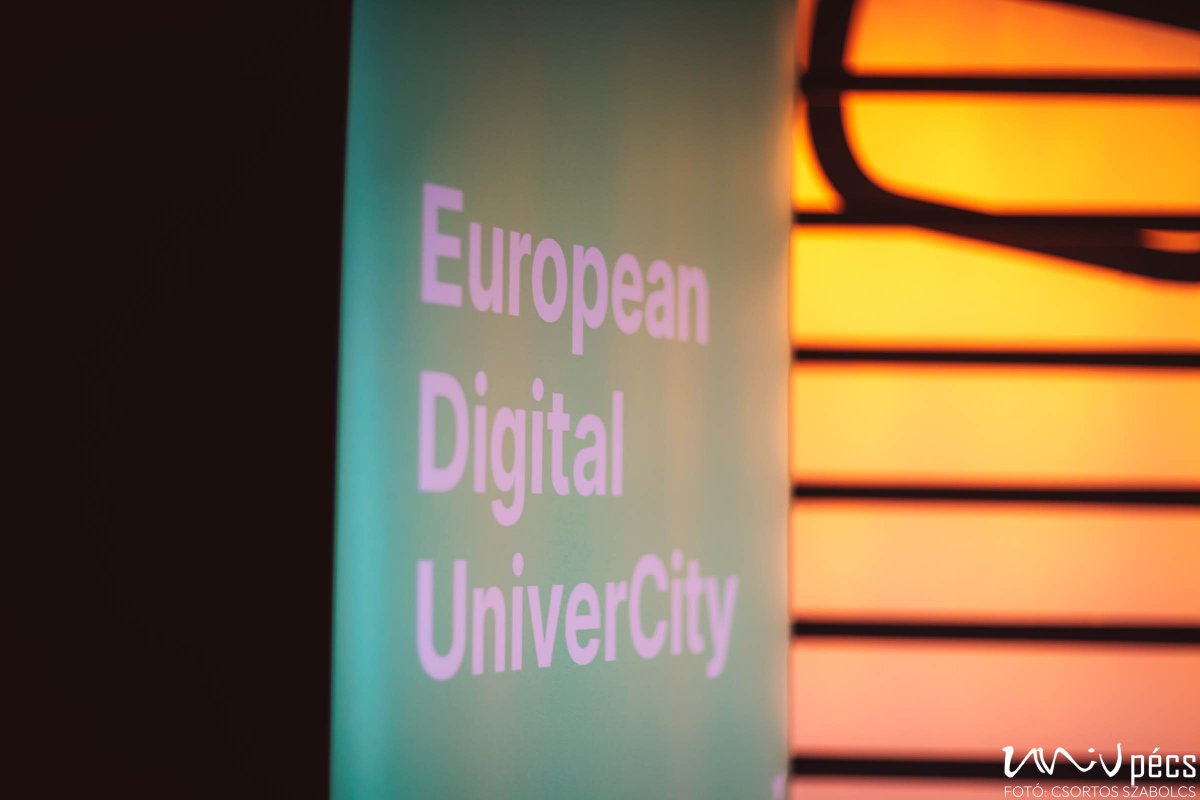
EDUC is a consortium of eight European Universities aiming at the digitisation of higher education and the creation of an integrated European University. Since 2019, the University of Pécs has been part of the European University Alliance (EDUC), which
was established in 2017 with the aim of making European higher education more competitive in the global space, both in terms of education and research.
Dr István Tarrósy said that EDUC has not only provided the ammunition to further strengthen internationalisation, but also „actually ready-made handholds, ideas, good practices and good models."
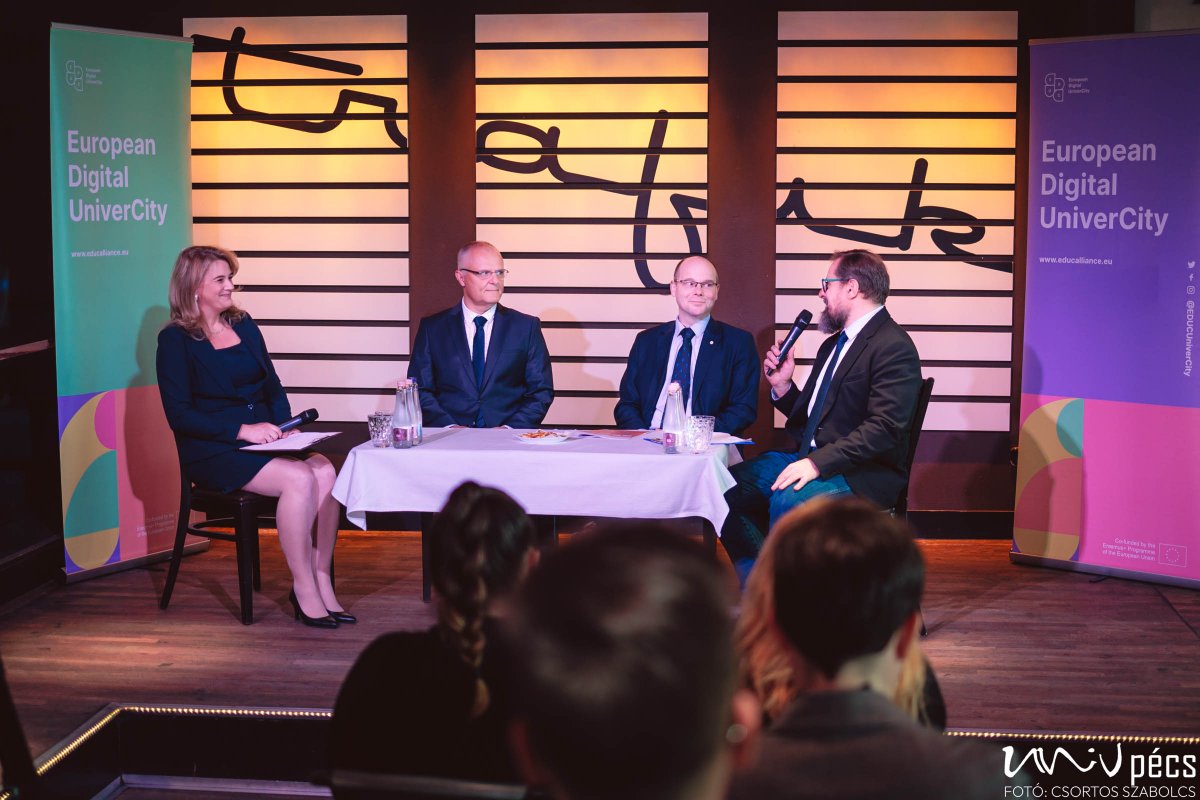
The members of the partnership share their culture, knowledge, skills and resources in order to achieve common goals,
which will help each institution to become more visible in the international arena, and thus provide better quality collaborations and opportunities for students, teachers and administrative colleagues.
Dr. József Betlehem, Vice-Rector for General, Strategy and Relations at UP, said that from the beginning, „the common dimension was to establish a European way of thinking in which European universities help each other, in which excellent universities can be even more excellent", and added that "in the last cycle, there have been very significant advances in terms of the many platforms for promoting student activities", referring to the need to transform physical activities and mobility into some form of digital space due to the Coronavirus pandemic.
At the same time, Dr. József Betlehem emphasized that this has led to an increased interest in short-term mobility programs, and online courses have also become increasingly popular.
Regarding the current state of scientific and research fields, Dr. András Komócsi, Vice-Rector for Science, said that „in the case of a university, in addition to teaching, the diversity of scientific life and the presentation of its results are also very important. The EDUC cooperation affects the daily life of the University of Pécs in several dimensions, and in fact, it is so interwoven and involves so many programs that it is not so easy to answer this question." Therefore, it is more appropriate to approach the issue from the other side and say that EDUC is not a grant system that provides funding for scientific research, but apart from that, the cooperation affects many levels of the scientific life of the UP.
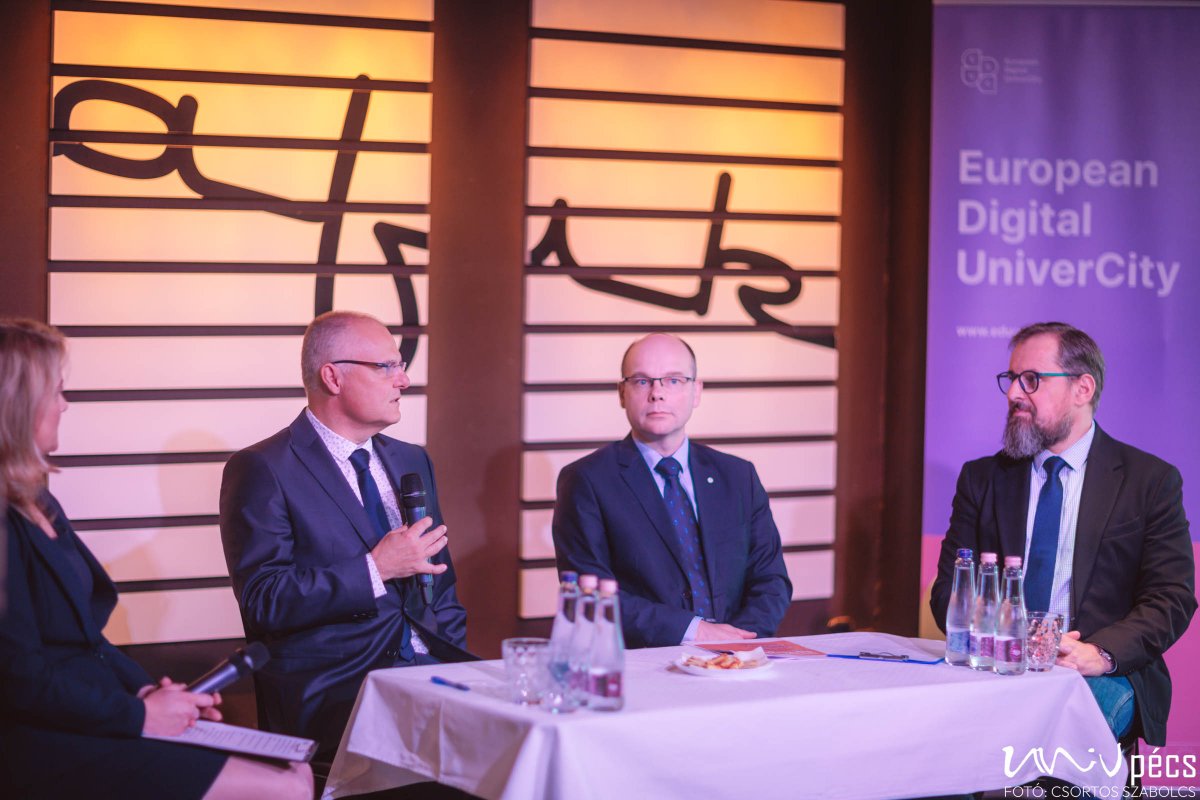
„Due to its nature as a university association, EDUC already has a lot of activities that have been initiated, aimed at and implemented to exploit synergies between the participating universities. In this sense, the exploration of joint scientific projects and synergies between the participating universities, the mapping and sharing of scientific infrastructures for the benefit of the application results is a very important element of this process", said Dr. András Komócsi.
Dr. István Tarrósy also stressed that one of EDUC's important objectives is „to bring the research and other infrastructures of the universities participating in the alliances closer together, to harmonise different governance concepts, and
to create a large virtual campus before our eyes. In the case of EDUC, this could be a virtual campus of 200,000 students,
where different opportunities, calls for proposals, can appear. The aim is to give current and future students the opportunity to develop their own creativity in research methodology, in solving practical problems, and to move flexibly between different countries, sectors, disciplines, languages and career paths.”
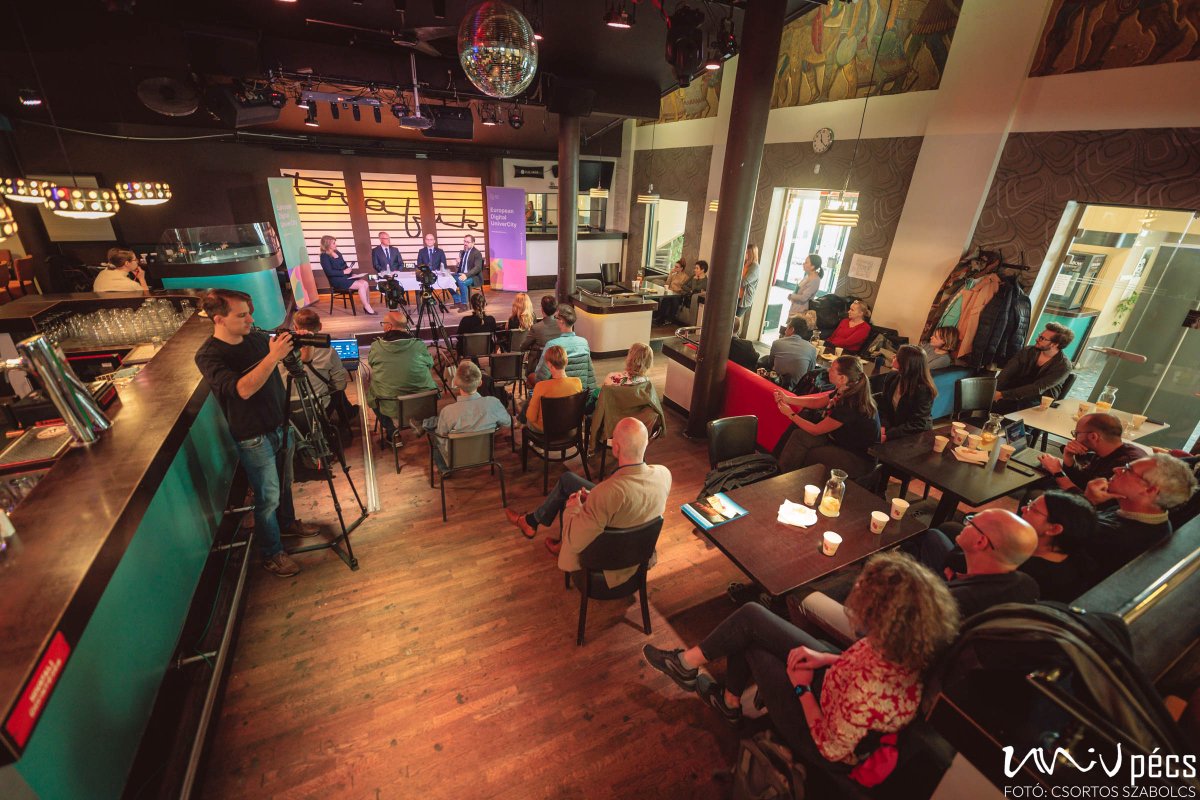
It is important that not only students, but also teachers can benefit from the programmes, as they have more and more opportunities for cooperation and joint development. The EDUC is committed to continuously improving the quality of education and promoting community development.
Calls for applications are constantly posted on the association's central website for students, teachers and administrators to take part in the training, mobility and skills development opportunities offered by the European Union and its partner universities.
Current opportunities offered by the EDUC:
- scholarship opportunities in the framework of virtual and physical mobility
- short-term, intensive, 1-2 week programmes
- Gap Year Scholarships
- Participation in the EDUC student community
- participation in thematic seminars
- EDUCARDS - European Student Card
- language training
Regarding the short and long-term goals, Dr József Betlehem said that EDUC is „a repository of opportunities" - he added „this type of alliance in itself provides an opportunity to have direct contact with at least seven countries for sure, and more through partnerships, through associate partnerships. But it also needs the involvement of academics."
In closing, Dr András Komócsi stressed, „EDUC is not just a successful bid, not just a collaboration where we get together from time to time and discuss how we can be more successful, but actually a story of concrete results, now fortunately looking back over many years and hopefully with a long future ahead of us."
The conversation can be watched back on the PTE1367 YouTube channel
- Log in to post comments
University of Pécs | Chancellery | IT Directorate | Portal group - 2020.
